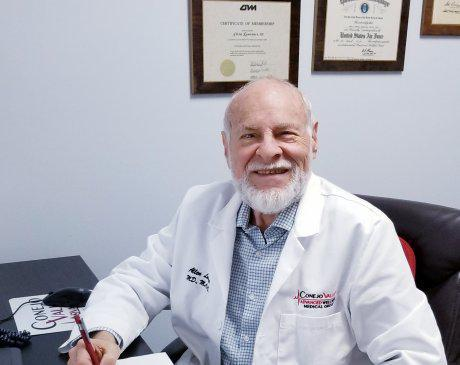- 21103 Vanowen St Woodland Hills, CA 91303 | Call us today!
- 310-879-9266
Testosterone Replacement Therapy (TRT): No Increased Heart Risks, New Research Shows

Recent research, presented at ENDO 2023 and published in The New England Journal of Medicine, suggests that testosterone replacement therapy, commonly used to treat “low T,” does not increase the risk of serious heart problems, easing concerns held by experts for nearly a decade. This finding is significant for men who rely on this therapy to counter symptoms associated with low testosterone, such as decreased libido and mood changes, and for the physicians who prescribe it.
The demand for testosterone replacement therapy surged when topical testosterone products hit the market in the early 2000s, often promoted as a way for middle-aged and older men to regain their youthful energy and vitality. However, there were concerns about its cardiovascular safety, and studies raised questions about its potential risks, leading the FDA to issue warnings on testosterone replacement products.
The latest research, known as the TRAVERSE trial, enrolled over 5,000 men diagnosed with low testosterone levels and at least three cardiovascular risk factors. After nearly two years of treatment, there was no difference in the rate of heart attacks, strokes, or cardiovascular-related deaths between those receiving testosterone therapy and those given a placebo. However, the therapy was associated with a higher incidence of irregular heartbeat, kidney problems, and blood clots in the legs or lungs.
While the study provides some reassurance regarding cardiovascular risks, experts caution against overinterpretation. They emphasize that testosterone replacement therapy should not be used for performance enhancement and should be reserved for medical indications. Additionally, the therapy has side effects, including potential fueling of prostate cancer growth, decreased sperm production, and an increased risk of clotting due to elevated red blood cell production.
The FDA may reconsider the cardiovascular warning label based on the trial’s results, but there are limitations to the research, such as the short follow-up duration and focus on gel-based testosterone. Nevertheless, the study’s findings contribute to our understanding of testosterone replacement therapy’s safety profile, offering both reassurance and caution for those considering or prescribing this treatment.

Article by Dr. Allen Lawrence, M.D.
If you have questions call me at 310-879-9266
or write me at info@AdvancedWellnessMedical.com




